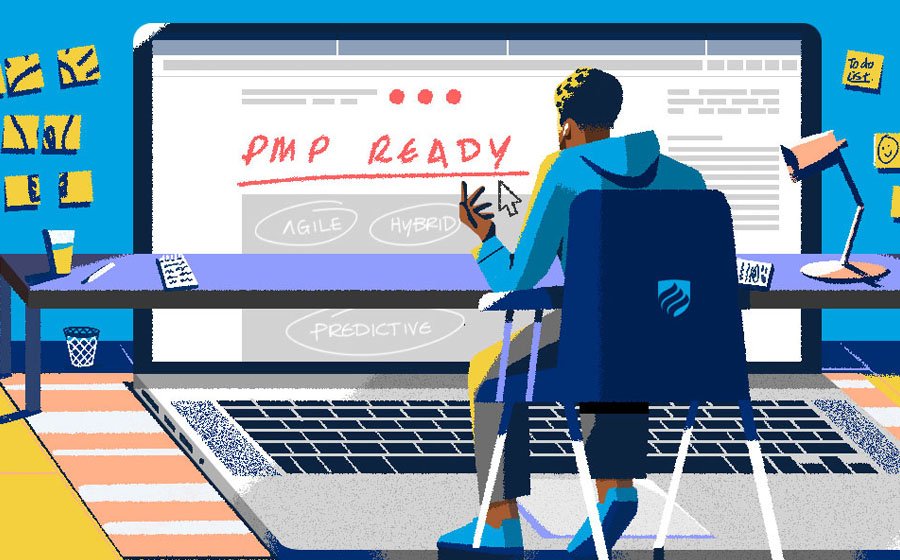Many people are very strange about the PMP test. And many people contact the PMP test for the first time. They do not know how to deal with the PMP test. SPOTO can tell you that there are three stages to solve this problem.
The PMP exam is really a headache for a few people, and the total preparation time is not much. This is a nightmare for some of my older friends, who are busy with work and have a lot to do at home. If you have passed the PMP exam and then you have no questions to worry. If you do not pass the exam then you need to pay the money to make up an examination to continue to burn the brain to see that difficult book. I have experienced it, and now I write the experience about how to pass the PMP for you, hoping it will be helpful to you.
The first stage is learning.
Students must attend 35 credit hours of project management training before the exam. The PMP exam[PMP-certification-training-online] textbook is the PMBOK book published by the American Project Management Association. The instructor will explain in detail the various project management knowledge, tools and methods introduced in PMBOK.
The first point is that students should try to arrange their own learning time, and keep preparing for the exam (generally prepare for the exam in February or March) every day. Because there is a little time for learning.
The second point is that the teacher should be able to speak clearly and easy to understand, making it easy for students to accept.
The second stage is reviewing.
Read the book at least three times before attending the training.
Read through the book for the first time, and follow the rhythm of the teacher to read each chapter carefully.
Second intensive reading generally happens during the practice of the mock exam, combined with the results of the mock exam. Do some intensive reading of unfamiliar chapters to ensure your understanding and memory.
The third time is to reread. It generally happens after the end of the simulation exam and before the exam. Because the memory of this time is not deep. And for some knowledge which you can not understand fully and some knowledge which you have made mistakes often, you should reread them to ensure that all knowledge points can be understood and memorized.
The third stage is a mock exam.
Generally, there are three model exams. This stage is a centralized test of students’ learning, which must be taken seriously. After each model exam, students should carefully analyze and summarize the distribution probability of right and wrong answers, so as to summarize the weak links of their knowledge content and review them carefully.
PMP test is not only an evaluation of project management knowledge and concept, but also an evaluation of students’ practical skills in mastering project management tools and methods, as well as an evaluation of project management culture and values. Therefore, students must have a deep understanding and understanding of project management knowledge in combination with theory and practice when preparing for PMP test. At the same time, I must change my role and answer of the questions from the perspective of global project management. The reason why I answered many questions wrong is the collision of culture and values.
These are the three stages of coping with the PMP exam. Finally, I wish all of you can pass your PMP exam.
To sum up, the way to pass the PMP is to listen to the class audio and do the questions over and over again.
After you pass the exam, you will go back to study the knowledge of PMP. After all, the purpose of taking the PMP is not only a certificate, but the application in practice.
Finally, I hope everyone can pass the test smoothly.
Xivents
Make Good Things Happen
Scroll to read more
Copyright Xivents 2022.










